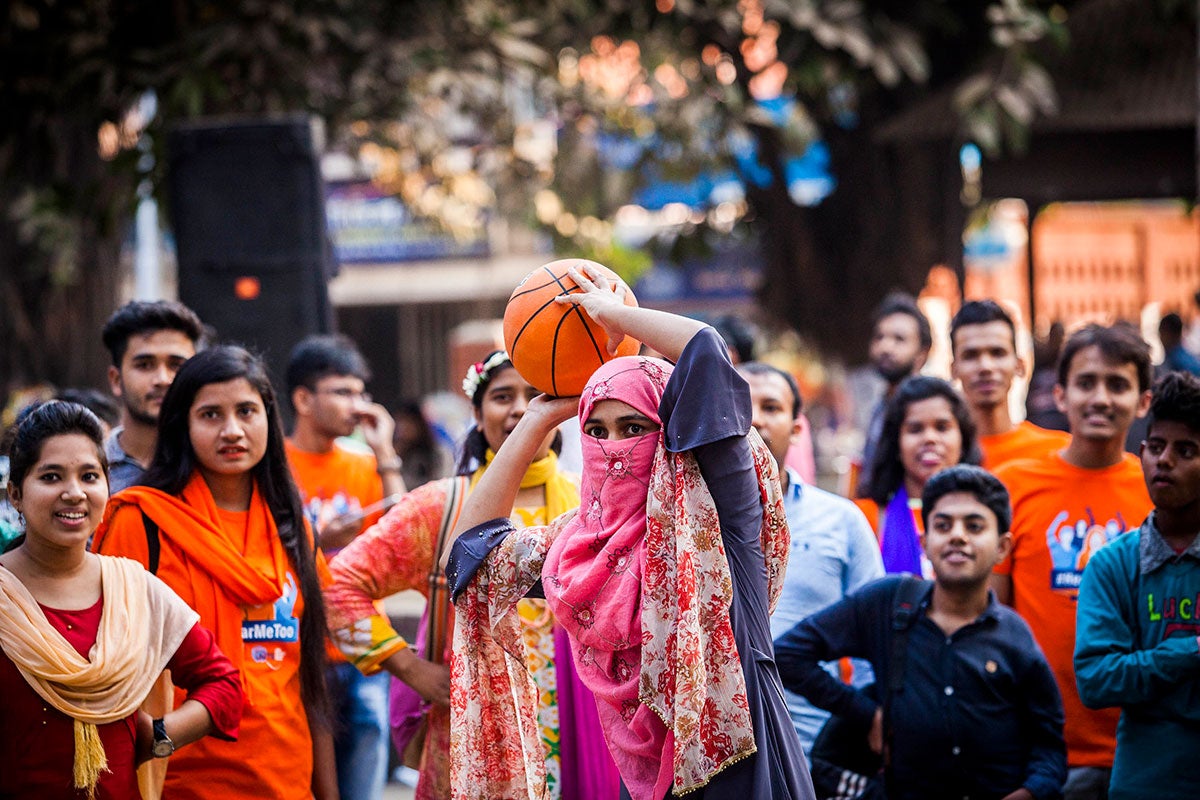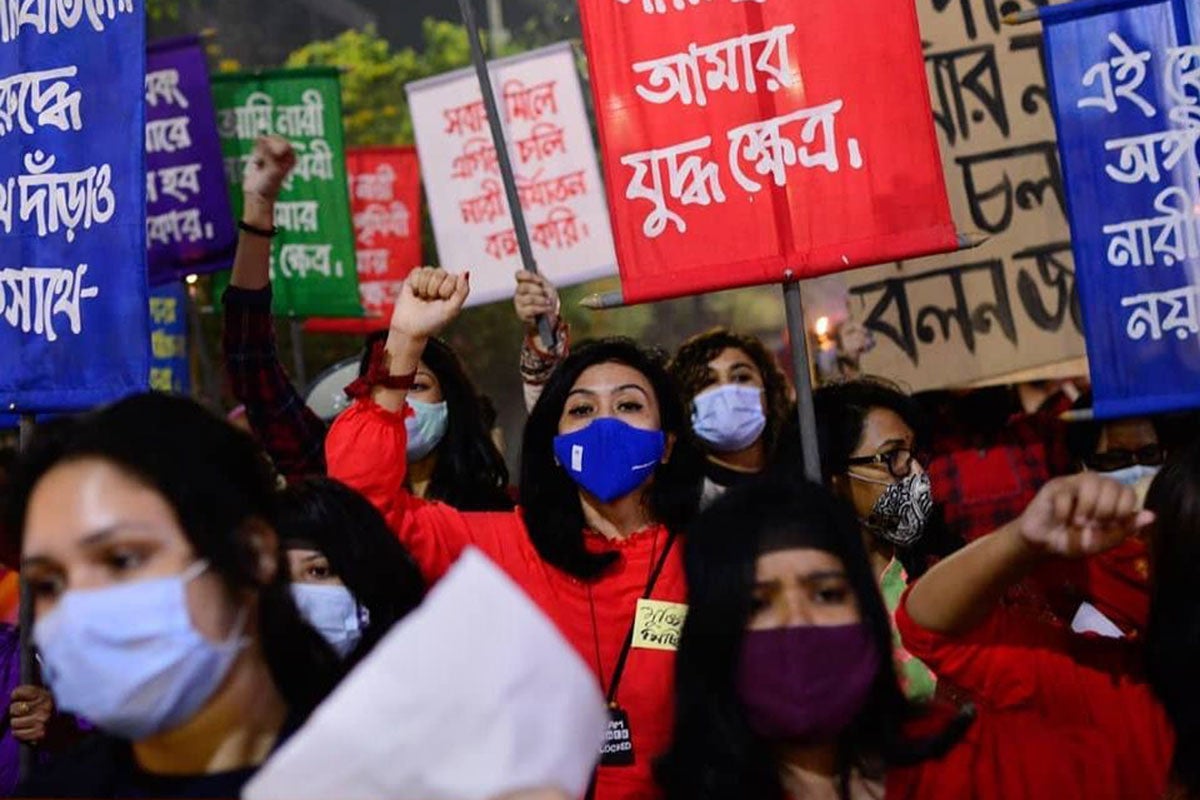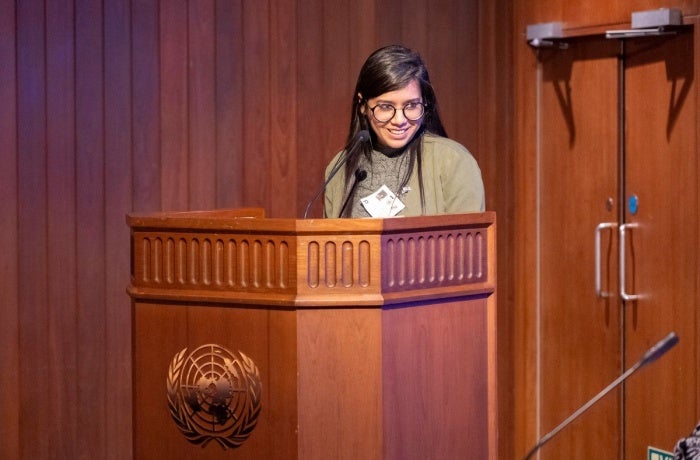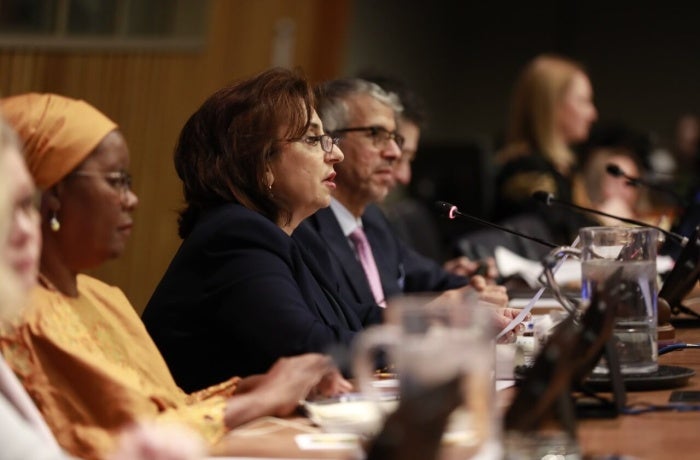A step forward for women’s safety in Bangladesh: The push for sexual harassment legislation
“I was in second grade when an elderly relative touched my chest while holding me on his lap. I knew something was wrong but didn’t tell my mother,” said Salma Sultana Sumi*, a student from a public university in Bangladesh.
“I feared men for years and avoided family gatherings. Even now, I carry a cutter (small knife) in my bag.”

High rates of sexual harassment in workplace, public space and online spaces
Sexual harassment may involve any conduct of a verbal, nonverbal or physical nature, including written and electronic communications. It can take a variety of forms – from looks and words to physical contact of a sexual nature – and impact the lives of women and girls every day, everywhere, by limiting their freedom of movement and safety.
According to the latest Women, Business and the Law report, although 151 countries now have laws against sexual harassment in workplaces, fewer have laws that address sexual harassment in education institutions (75), in public spaces (39), and online (75). In 98 countries sexual harassment legislation does not include criminal penalties or civil remedies.
In 2021, Bangladesh Women’s Lawyers’ Association analysed reported cases to show that 84 per cent of women face sexual harassment in workplaces and public spaces, such as in schools, on the streets, and in public transportation, and even at home. Many more women face sexual harassment online.
The 2009 High Court Directive and current legal gaps
Although the Bangladesh High Court issued a landmark Directive in 2009 to prevent sexual harassment at workplaces and schools, the incidents remain widespread and normalized.
Sumi described how male senior students and teachers frequently leave inappropriate comments on her social media, making her feel uncomfortable and unsafe.
“Once, I requested a teacher to review my grades, and he asked me to meet him at 6 p.m. in his office. I didn’t go” she recalled. “He then asked me to meet him at 8 a.m. the next day, when the campus is mostly empty, so I took my friends along. He didn’t seem pleased. Maybe he had no ill intention, but how could I be sure? I’d rather be safe than sorry.”
Sumi and her friends want efforts to focus on changing the mindsets of men, families and institutions, to stop normalizing sexual harassment against women.
Sabina Ali*, faculty and member of the Sexual Harassment Complaint Committee at a private university in Dhaka, agrees. “We get around 8-10 cases each year since we formed the Sexual Harassment Complaint Committee in 2017,” she said. “Each semester, we hold orientations on the committee’s role, conduct inductions for new faculty members, and also run workshops for non-teaching staff.”
She noted that most reported cases happen online. “We can dismiss perpetrators from the campus. But how do we make sure that they wouldn’t repeat their behaviour outside or in their new workplace?”

Advocacy for legislation and how the new law will help women and girls
Since 2009, Bangladesh Mahila Parishad (BMP), a non-profit women’s organization and UN Women partner, has been advocating for a law to address sexual harassment in public spaces, workplaces and educational institutions. Masuda Rosy, a veteran BMP feminist activist has contributed to the draft bill and is involved in supporting young women and girls facing violence, abuse and harassment.
“Violence against women is so normalized in our society, that sexual harassment is often not seen as a crime,” said Rosy. “Without a formal law, it is difficult to hold perpetrators accountable. With UN Women’s support, and along with other civil society partners and UN agencies, we contributed to drafting the ‘Sexual Harassment Prevention and Protection bill,’ which defines harassment, outlines the reporting steps, and includes penalties, like fines, suspension, or dismissal from job.”
This would be the first-ever bill on sexual harassment where civil society and UN agencies came together to develop the bill. The draft law was submitted to the Ministry of Women and Children Affairs for further consultations and enactment.
UN Women is supporting the Government of Bangladesh and civil society organizations in enacting the new law to ensure safety for women and girls. “We must break the silence around sexual harassment in workplaces, educational institutions and public spaces. It must not be normalized. We must all speak up and take action to prevent sexual harassment. Everyone has a role to play – no one can remain a bystander,” said UN Women Representative Gitanjali Singh. “UN Women remains committed to working with the government and civil society partners to support the promulgation and implementation of a law preventing sexual harassment.”
Research shows that laws matter in changing mindsets and reducing the prevalence of violence against women. For instance, The Gender Snapshot 2024 report shows that countries with domestic violence legislation have lower rates of intimate partner violence (9.5 per cent) than those without legislation (16.1 per cent).
*Aliases have been used instead of real names to protect the individuals from risk of retaliation and violence.









